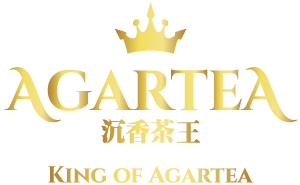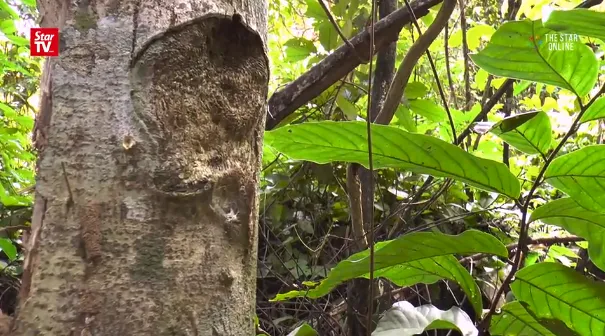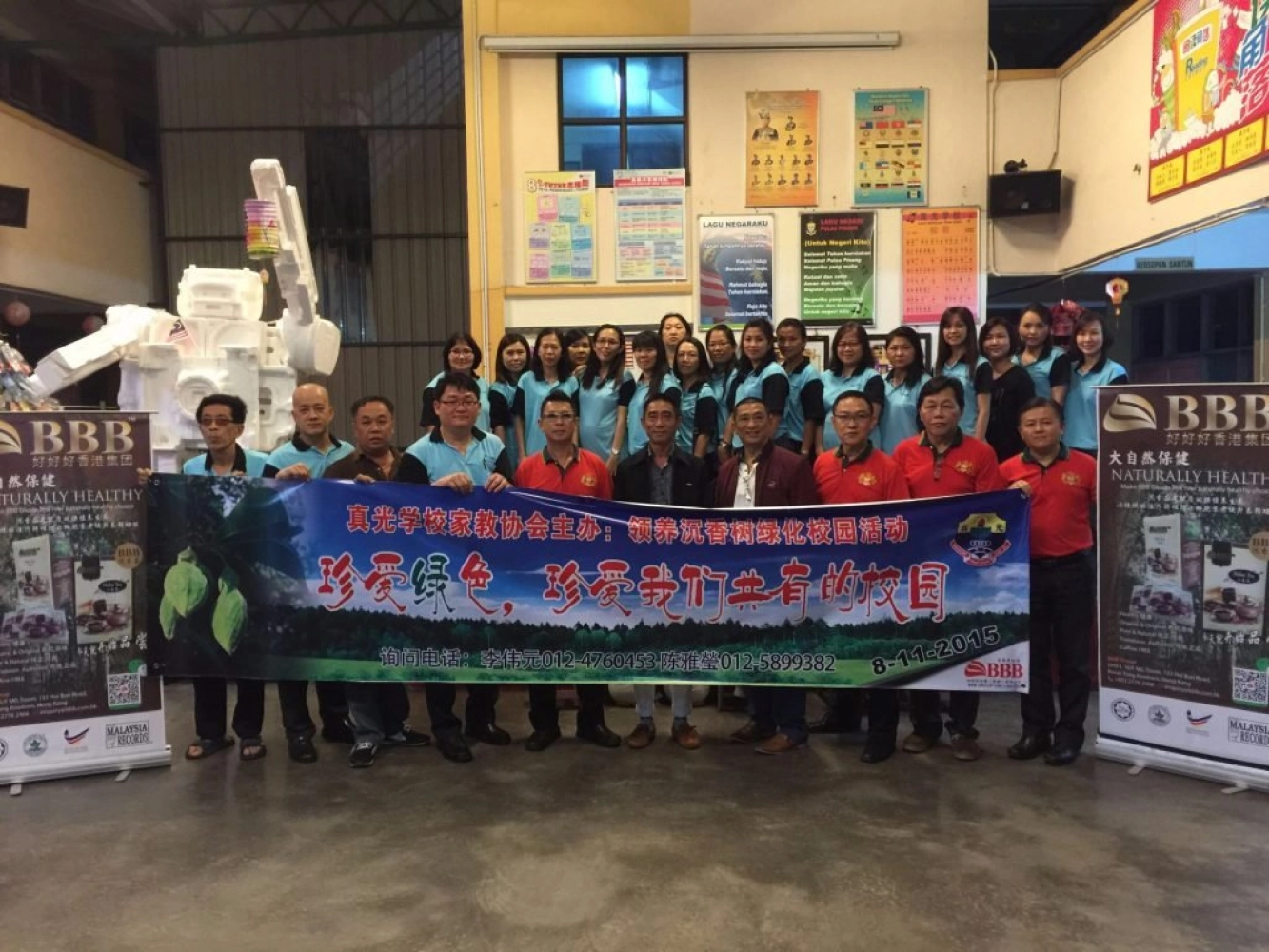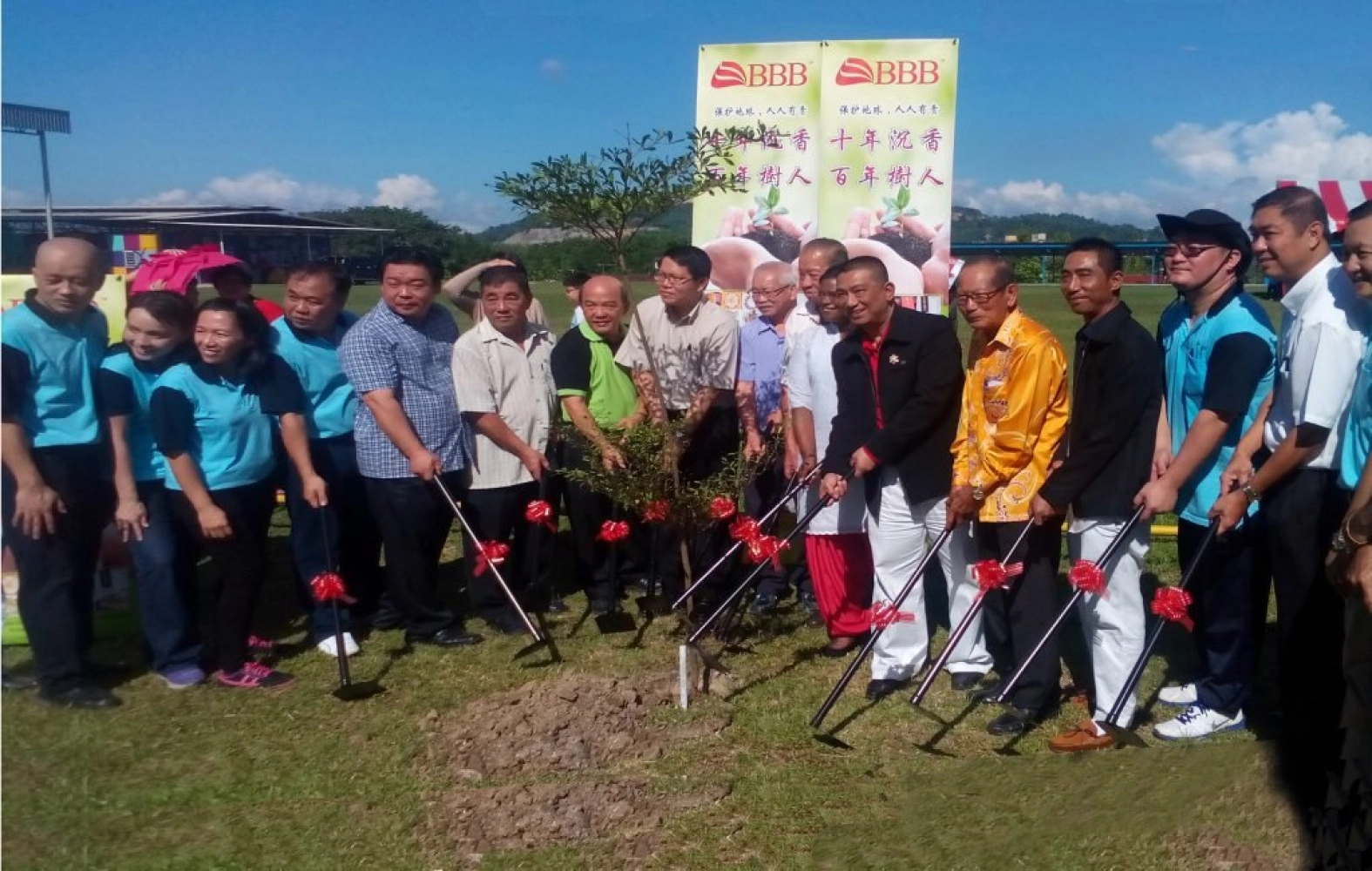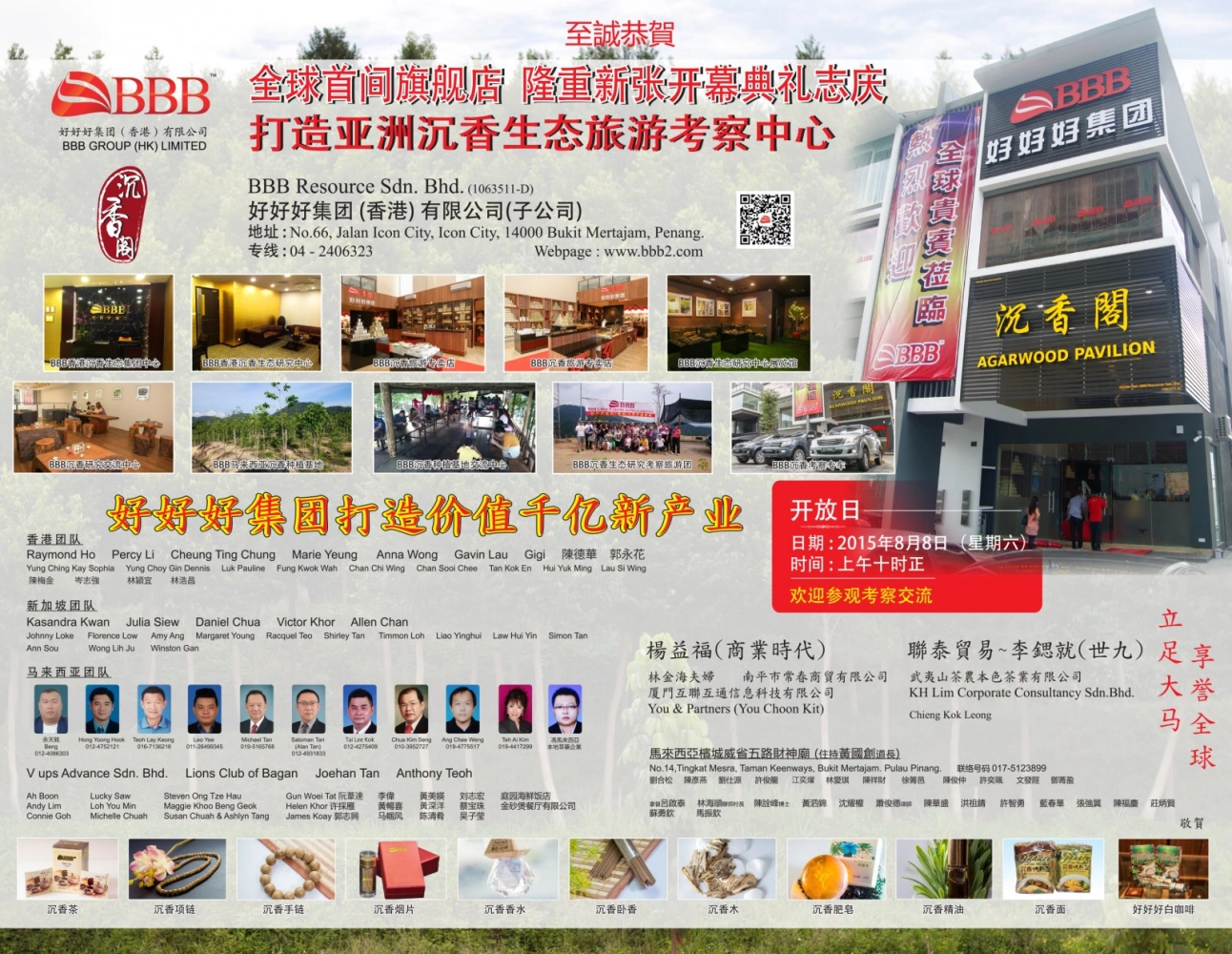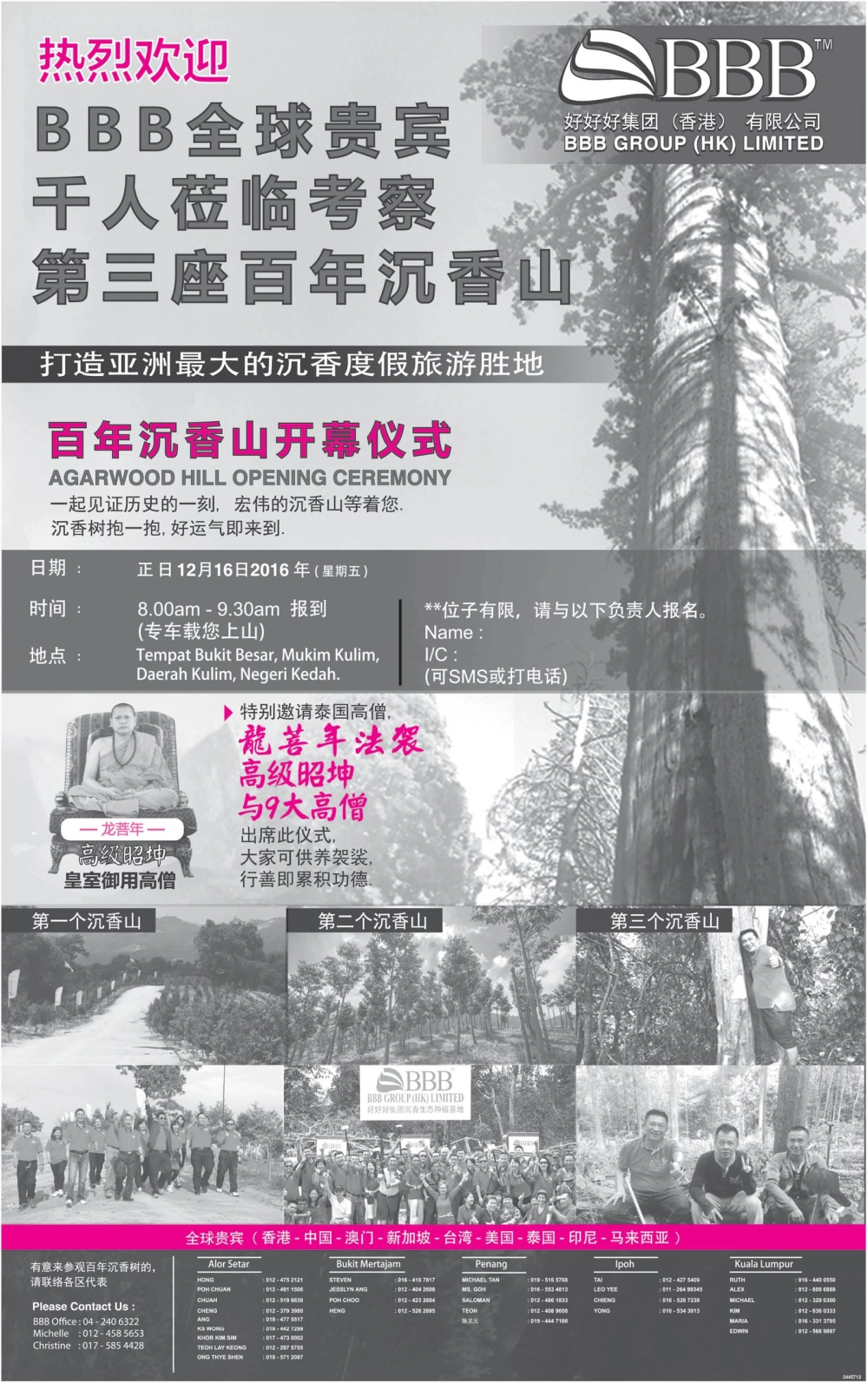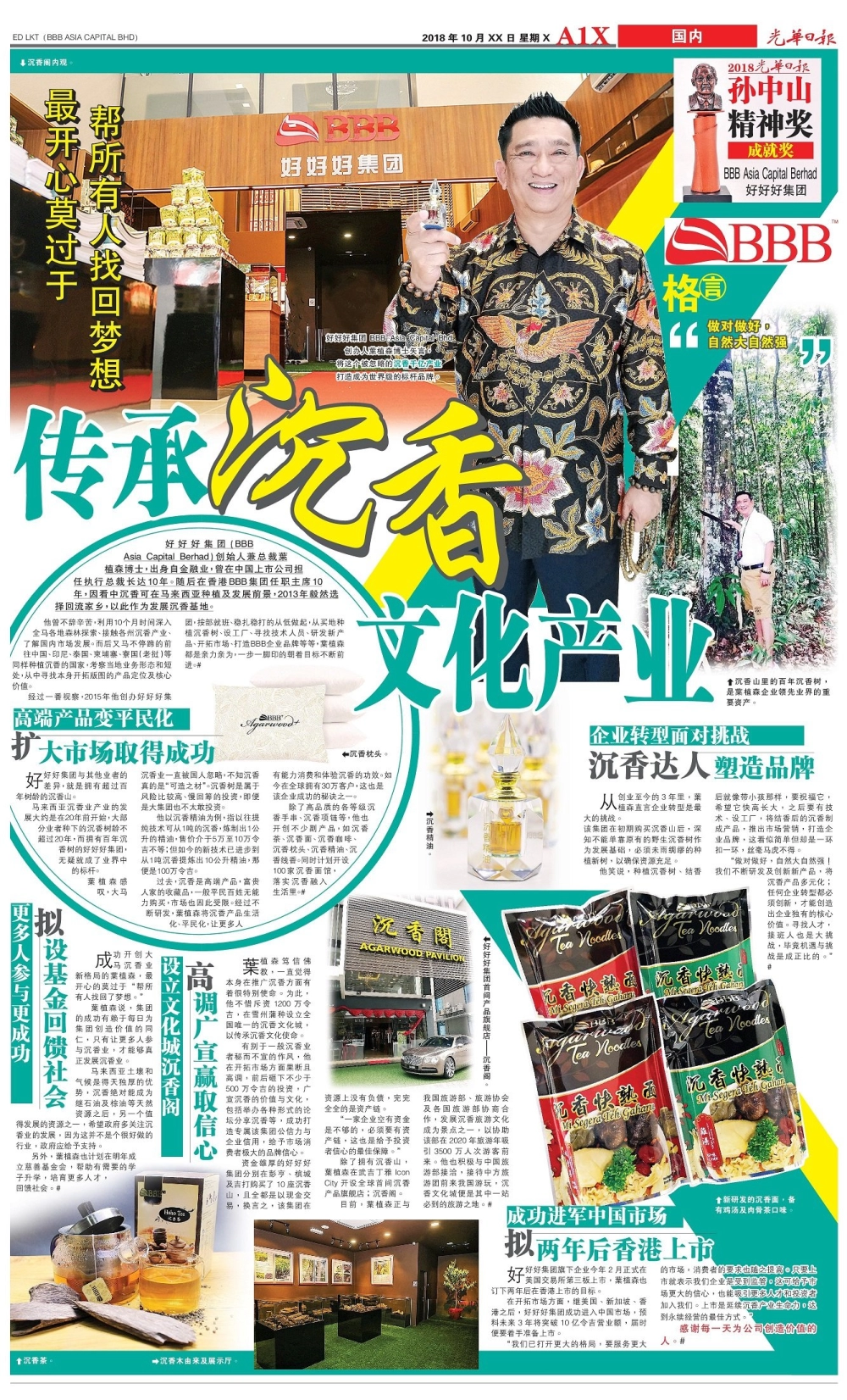Liquid gold’ rush endangers karas trees
EXCLUSIVE: GERIK: Sorja Tan (pic) remembers a time when it was easy to find karas trees – tall, straight jungle giants – that grew in the forest reserves here.
Now, there are days when he leaves the forest after a long day of gaharu collecting empty-handed.
“In the past, if you go to the forest, karas trees were not rare. You could find them close together here and there. Now, there are only a few left,” said the 22-year-old of the Temiar tribe living nearby.
Karas trees – or aquilaria malaccensis – are being logged by the tens of thousands in Malaysian jungles, mostly by foreigners because of the valuable agarwood, known locally as gaharu.
One kilogramme of agarwood can fetch between RM4,000 and RM20,000 and its woodchips – which are turned into essential oils used in perfume and incense – fuel a RM26bil global trade every year.
The rareness and value of agarwood oil has led traders to call it “liquid gold” and has sparked many to either grow or log karas trees for profit.
Tan is worried about the agarwood going extinct.
This gold rush is threatening to push Malaysia’s karas trees into extinction, said Forest Research Institute Malaysia (FRIM).
In 2004, the National Forest Inventory estimated there were 3.06 million karas trees in the wild. Today, that number has more than halved to 1.16 million, according to the latest data from the Forestry Department.
The demand for karas trees has become so overwhelming that the Natural Resources and Environment Ministry said its research plantations have been trespassed by illegal loggers who stole 40% of the trees.
However, the ministry does not see the population drop in the wild as alarming.
Karas trees produce agarwood as a reaction to when injured – either by insect or bacterial infection, lightning strikes or even human logging.
The agarwood acts as a defence mechanism for the trees much like white blood cells in the human body, said FRIM researcher Mohd Noor Mahat, who specialises in karas trees.
Malaysia has about 2,000ha of karas tree plantations, where farmers intentionally infect trees to get them to produce agarwood. But it takes up to at least five years before any agarwood can be harvested.
“Why wait so long when there are trees in the forest, growing for decades, that I can just go and cut down? That’s human behaviour,” Mohd Noor said.
The Forestry Department has said agarwood cartels have been living and harvesting karas trees in jungles here as early as the late 80s.
Most of these foreigners from Thailand, Cambodia, Indonesia and the Philippines harvest the woodchips and smuggle them into Singapore, Thailand and Indonesia.
Mohd Noor said competition between cartels has become so fierce, they have begun arming themselves in the jungle and even fight each other over who gets to chop down which tree.
“The worst thing is, only a small percentage of karas trees produce agarwood. They chop down whatever tree and only get a small bit of agarwood from each. The rest die for nothing,” he said.
While there have been efforts to replant karas trees and enforce illegal removals of it in the wild, Mohd Noor believes the rate of them being chopped down is much higher.
“There is a possibility that it can go extinct. We have yet to study the environmental impact of that but this would mean that the genetics of our karas trees will no longer exist and sources of new medicine and economy from agarwood will be gone,” he said.
23 Feb 2022
